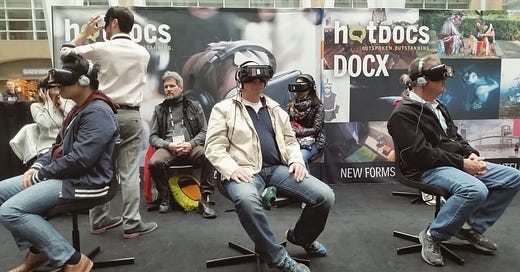Hot Docs 2017: The Future Is Now And Then
We report on the best films and biggest trends of this year’s fest.

Toronto’s massive Hot Docs Canadian International Documentary Festival, though stuffed to the gills with cinematic treasures, is not necessarily known as the greatest launching pad for new films just having their world premiere. Falling on the calendar in the wake of a long list of other…
Keep reading with a 7-day free trial
Subscribe to Nonfics to keep reading this post and get 7 days of free access to the full post archives.



